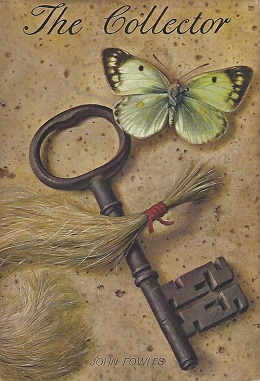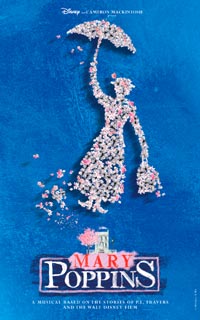Related Research Articles

Our Town is a three-act play created by American playwright Thornton Wilder in 1938. Described by Edward Albee as "the greatest American play ever written", it presents the fictional American town of Grover's Corners between 1901 and 1913 through the everyday lives of its citizens.

Jonathan Paul Clegg, was a South African musician, singer-songwriter, dancer, anthropologist and anti-apartheid activist.

The Collector is a 1963 thriller novel by English author John Fowles, in his literary debut. Its plot follows a lonely young man who kidnaps a female art student in London and holds her captive in the cellar of his rural farmhouse. Divided in two sections, the novel contains both the perspective of the captor, Frederick, and that of Miranda, the captive. The portion of the novel told from Miranda's perspective is presented in epistolary form.
The Stage is a British weekly newspaper and website covering the entertainment industry and particularly theatre. It was founded in 1880. It contains news, reviews, opinion, features, and recruitment advertising, mainly directed at those who work in theatre and the performing arts.

St John Greer Ervine was an Irish biographer, novelist, critic, dramatist, and theatre manager. He was the most prominent Ulster writer of the early twentieth century and a major Irish dramatist whose work influenced the plays of W. B. Yeats and Sean O'Casey. The Wayward Man was among the first novels to explore the character, and conflicts, of Belfast.
A political drama can describe a play, film or TV program that has a political component, whether reflecting the author's political opinion, or describing a politician or series of political events.
Woyzeck is a stage play written by Georg Büchner. Büchner wrote the play between July and October 1836, yet left it incomplete at his death in February 1837. The play first appeared in 1877 in a heavily edited version by Karl Emil Franzos, and was first performed at the Residence Theatre in Munich on 8 November 1913.

Kitchen sink realism is a British cultural movement that developed in the late 1950s and early 1960s in theatre, art, novels, film and television plays, whose protagonists usually could be described as "angry young men" who were disillusioned with modern society. It used a style of social realism which depicted the domestic situations of working-class Britons, living in cramped rented accommodation and spending their off-hours drinking in grimy pubs, to explore controversial social and political issues ranging from abortion to homelessness. The harsh, realistic style contrasted sharply with the escapism of the previous generation's so-called "well-made plays".

Theater in the United States is part of the old European theatrical tradition and has been heavily influenced by the British theater. The central hub of the American theater scene is Manhattan, with its divisions of Broadway, Off-Broadway, and Off-Off-Broadway. Many movie and television stars have gotten their big break working in New York productions. Outside New York, many cities have professional regional or resident theater companies that produce their own seasons, with some works being produced regionally with hopes of eventually moving to New York. U.S. theater also has an active community theater culture, which relies mainly on local volunteers who may not be actively pursuing a theatrical career.
Absurd Person Singular is a 1972 play by Alan Ayckbourn. Divided into three acts, it documents the changing fortunes of three married couples. Each act takes place at a Christmas celebration at one of the couples' homes on successive Christmas Eves.

Mary Poppins is a musical with music and lyrics by Richard M. Sherman and Robert B. Sherman and additional music and lyrics by George Stiles and Anthony Drewe, and a script by Julian Fellowes. The musical is based on the similarly titled Mary Poppins children's books by P. L. Travers and the 1964 Disney film, and is a fusion of various elements from the two, including songs from the film.
Slice of life is a depiction of mundane experiences in art and entertainment. In theater, slice of life refers to naturalism, while in literary parlance it is a narrative technique in which a seemingly arbitrary sequence of events in a character's life is presented, often lacking plot development, conflict, and exposition, as well as often having an open ending.
Shirley Ann Pithers, better known as Jane Freeman, was an English-born Welsh actress who was best known for her work on British television, mostly notably for her role as Ivy in Last of the Summer Wine.

Naturalism is a movement in European drama and theatre that developed in the late 19th and early 20th centuries. It refers to theatre that attempts to create an illusion of reality through a range of dramatic and theatrical strategies. Interest in naturalism especially flourished with the French playwrights of the time, but the most successful example is Strindberg's play Miss Julie, which was written with the intention to abide by both his own particular version of naturalism, and also the version described by the French novelist and literary theoretician, Emile Zola.
33 Variations is a play by Moisés Kaufman, inspired by Ludwig van Beethoven's Diabelli Variations. It débuted on Broadway on March 9, 2009, starring Jane Fonda. Originally written in 2007, its world première was held at Arena Stage in Washington, D.C.
Esme Church was a British actress and theatre director. In a long career she acted with the Old Vic Company, the Royal Shakespeare Company and on Broadway. She directed plays for the Old Vic, became head of the Old Vic Theatre School and then director of the Bradford Civic Playhouse, with its associated Northern Theatre School.
Irene Sutcliffe was an English actress. She was best known for playing Maggie Clegg in ITV's Coronation Street, a role she played from 1968 until 1975. She had a long career; her first credited TV role was in 1953 on BBC's Sunday Night Theatre and her last in 2015. In 1999, Sutcliffe was a finalist for the Audie Award for Best Female Narrator for her narration of Jane Austen's Pride and Prejudice.

Rosemary Frances Rees was a New Zealand actress, playwright, theatre producer and novelist. She worked in New Zealand, Australia and England. After her career in theatre she became a romantic novelist.
Mary Casson was an English theatre actress who made her name in portraying characters in the plays of William Shakespeare and Wendy Darling in Peter Pan. Born into a theatrical family, she was in the theatre until the late 1930s before she switched to a career in music touring the United Kingdom.
Ritsuko Mori was a Japanese actress. As a woman from a respected family, her entry into the acting profession was considered disreputable, but her success improved the opportunities and social standing of professional actresses in Japan.
References
- ↑ "Jane Clegg review – suffrage-era gem shines again". The Guardian . 2019-04-26. Archived from the original on 2021-04-23.